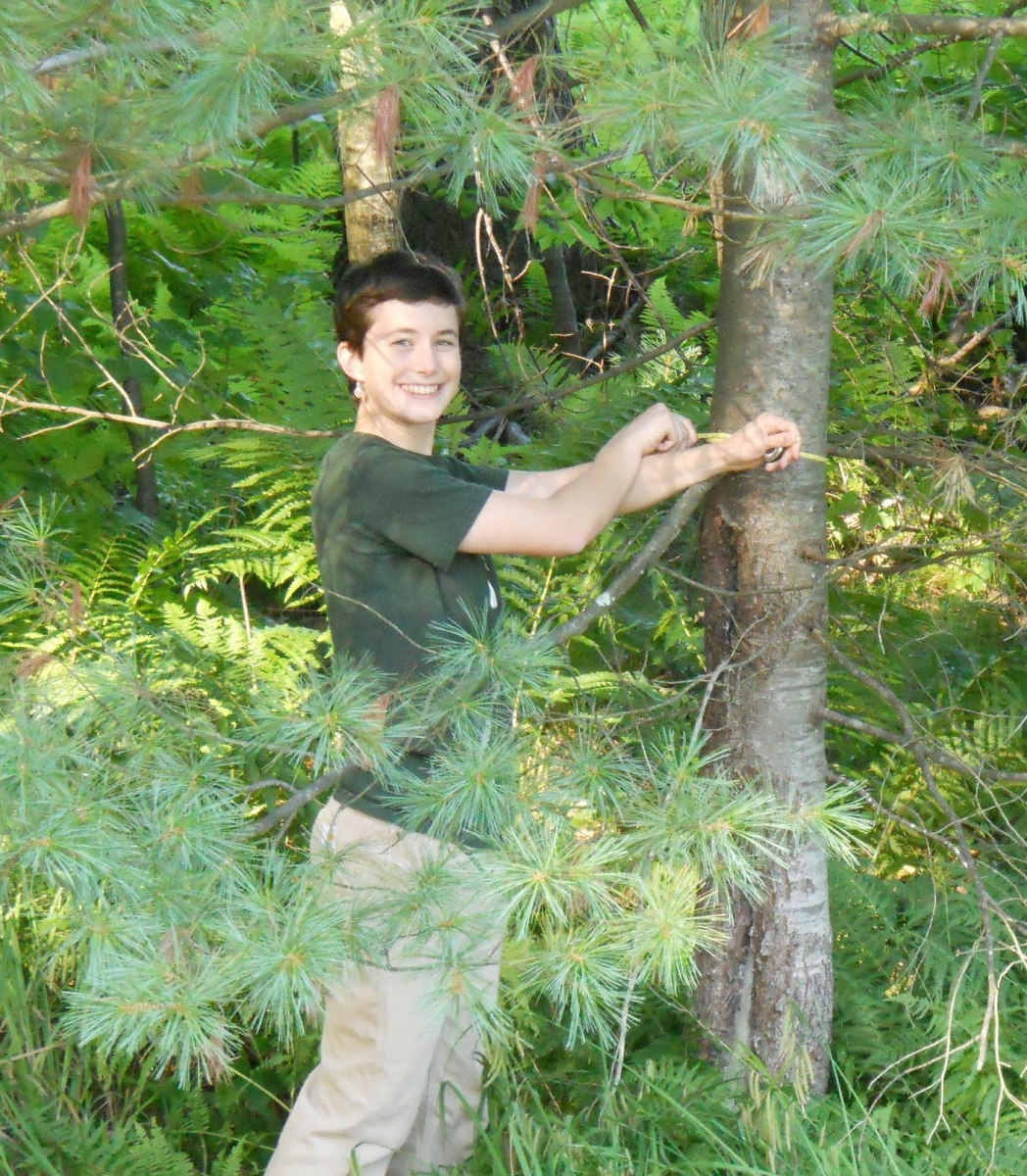You are here
Vegetation sampling in wildlands and woodlands
We have spent most of the summer traveling across New England to do field work at sites in Massachusetts, New Hampshire, and Maine. At each site, we have been establishing permanent vegetation sampling plots for a long-term study comparing forest dynamics in managed and unmanaged forests. We carry 2-foot pieces of steel pipe into the woods (3 lbs per pipe x 3 plots x 4 pipes per plot + 10 lbs for other gear = Wicked heavy), use them to mark the corners of 20x20 meter plots, and survey these plots for herb-layer species, saplings, trees, evidence of historical disturbance, and environmental variables. Over the course of the summer, we have gained familiarity with the flora of New England and cemented a great friendship while also learning about the logistics and challenges of independent field research.
A typical day in the field would involve sampling 1-4 plots, depending on the difficulty of access and sampling. The two sites in Maine proved the most challenging, what with fir-choked stands and an abundance of new species to learn in Dover-Foxcroft, and long hikes through recently logged forests and vicious spruces in Amherst. In all, we sampled about 60 plots this summer (roughly 6 acres of forest in total!). On the rare days when it rained, we rejoiced and worked on data entry and identifying unknown species.
Since returning from our last field excursion, we have spent the last two weeks of the program focusing on our individual projects for the symposium. Maddy is analyzing the data from the past three years of W&W vegetation sampling to study the effect of overstory composition and environmental variables on understory diversity. Joe is working on improving data management and creating a master species list for the project. After spending half the summer camping, cooking for ourselves, and regularly confronting insects and humidity, we are enjoying our beds, Tim's cooking, and the chance to work inside unperturbed by the weather.


